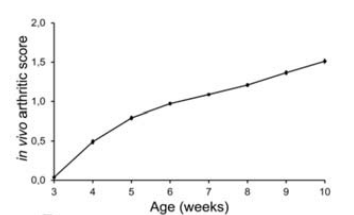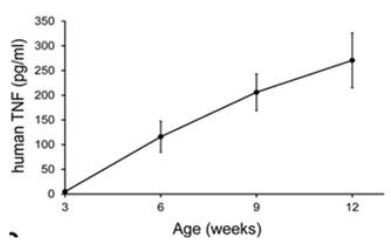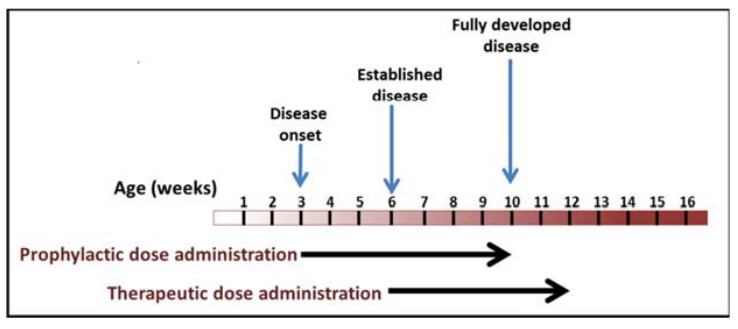Tg197 transgenic mice: a unique model of human arthritis pathology
Tg197 is a transgenic mouse overexpressing human TNF resulting in
the spontaneous development of arthritis pathology closely resembling
human rheumatoid arthritis. The mice develop arthritis with 100%
penetrance and provide a fast in-vivo model for the evaluation of human
therapeutics targeting rheumatoid arthritis.










